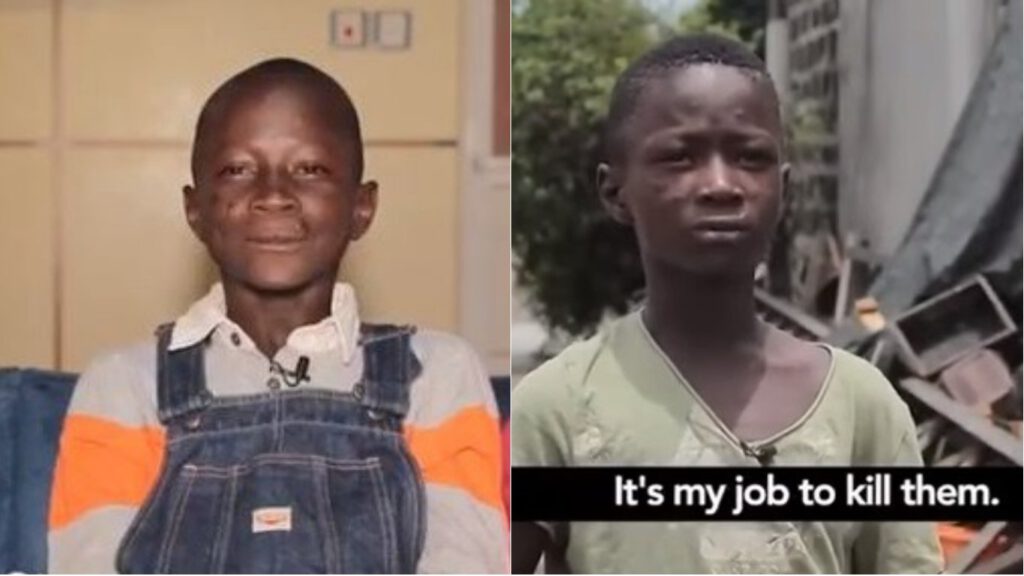When British Soldiers came into Nigeria with tennis in 1904, their immediate plan was to continue the sport they really loved where they were moving to. But it has gone beyond that ever since.
While these soldiers may have left this side of the divide, their footprints have since remained, and the impact of the sport they loved and played with passion can never be overemphasized.
Chicago-based Nigerian tennis coach, Abel Ubiebi noted, during an interview, that “Most Nigerian / African tennis players are from humble backgrounds, most of them accidentally came across tennis”.
The respected PTR Tester also added: “Most of them wouldn’t have been what they are today if not that they have contact with tennis.”
READ ALSO: Orphaned Lucky Danjuma Seeks Help To Realize Tennis Dreams
And like most sporting activities that have been shaping lives positively, tennis is actually helping young minds stay off drugs, violence and other vices. It is helping to give these kids an alternative to the other vices they may have been enticed to.
In Nigeria, athletes go to the National Stadiums across the country, especially because it is open to the general public, therefore giving any prospective sportsman the opportunity to focus on a particular sport, and in Lagos, southwest Nigeria, the go-to place is the National Stadium in Surulere, one of the most vibrant neighbourhoods in the mega city.

While violence cannot be directly associated to any part of the State, it is not unusual to find street urchins around Ojuelegba (about 2km from the Stadium) or from Shitta (about 3mins drive from the Stadium), another area more popular for its notoriety.
Therefore, you are almost certain to find athletes from these areas stroll into the Stadium every now and then, and one of such athletes is Wasiu Yusuf, a physically-challenged table tennis player whose talent was evident but was deemed surplus to requirements to make it to the national team. He therefore spent most of his time just roaming the stadium in sheer hopelessness.
READ ALSO: Nigeria’s Alex, Wasiu Upset South African, Tanzanian To Clinch Doubles Title At Nairobi Open
Providence brought Yusuf in contact with Nigeria’s national wheelchair tennis coach, Frank Tarmena, who was always training physically-challenged tennis players. He noticed this ingenious young man, and invited him over to the tennis courts inside the national stadium.
“I asked him if he could try tennis, that I would love to train him to become a great tennis player. He agreed and that was how we started.
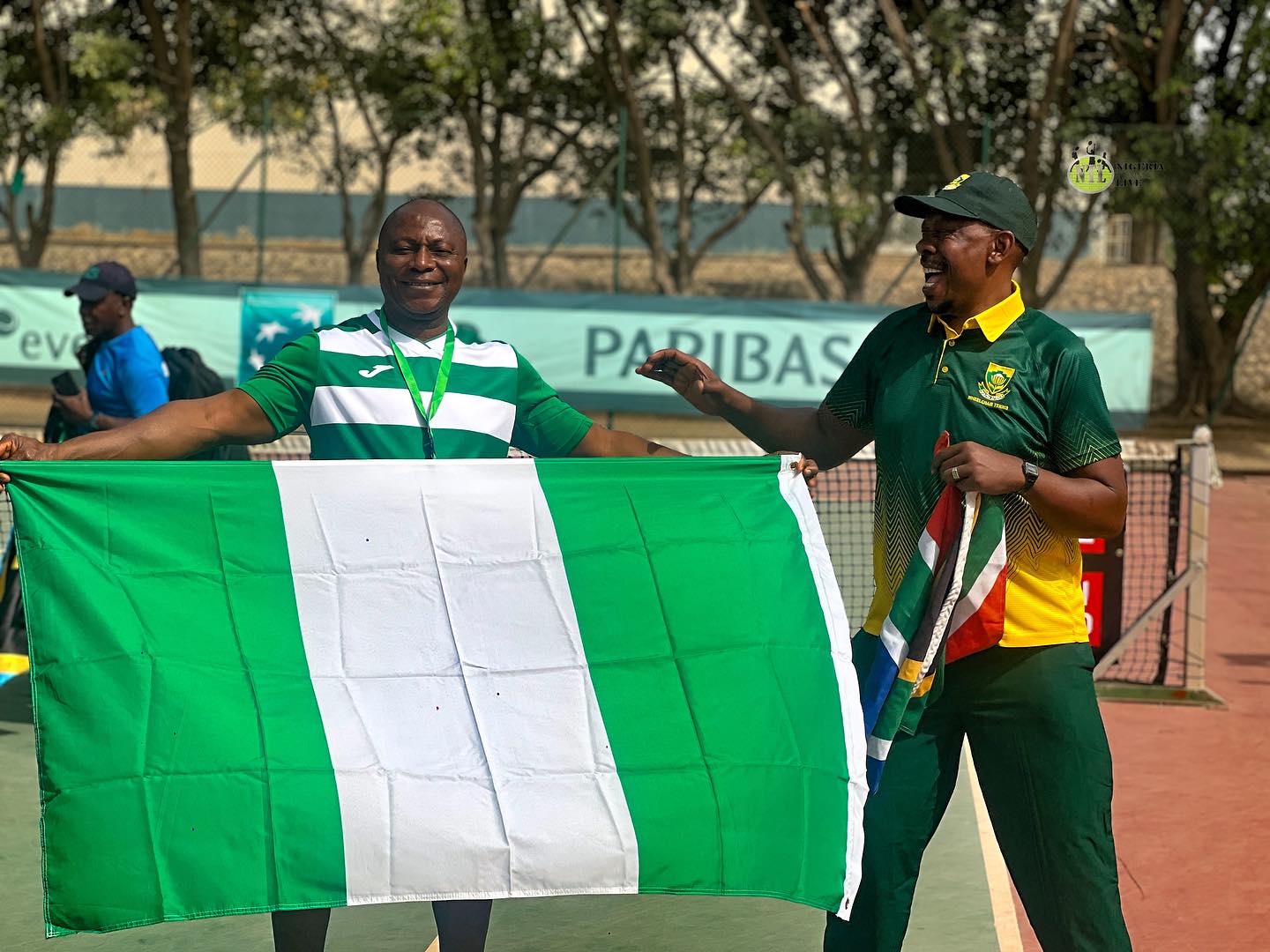
“Wasiu not only dominated tennis in Nigeria, he rose to become Africa’s number one tennis player and this is something I will always be excited about because of how he started.
“He has grown since then and the records are there for all to see, you can check the history books to see how far Wasiu has come. He is one of those players I can beat my chest that I discovered,” an excited Tarmena told Nigeria Tennis Live.
Currently, he is ranked 303 in the world (as at 30 September, 2024) and 17th in Africa after suffering (like most Nigerian players) from a harsh dearth of competitions for physically-challenged players.
Despite the downside, Yusuf himself confirmed this change effected by Coach Frank via an interview a little over a decade ago, when he unequivocally stated that tennis changed his life.
READ ALSO: Patrick Mouratoglou Congratulates Nigeria Tennis Live For Promoting Nigerian Tennis
In the interview with popular Nigerian media outlet, PM News, he was quoted to have said: “I used to be a table tennis player. One day I was at the National Stadium where Coach Frank Tarmena saw me and said that I could make it as a wheelchair tennis player.
“I followed his advice and it started from there. The first tournament I played was the Fanta Championship, which I lost in the final”.
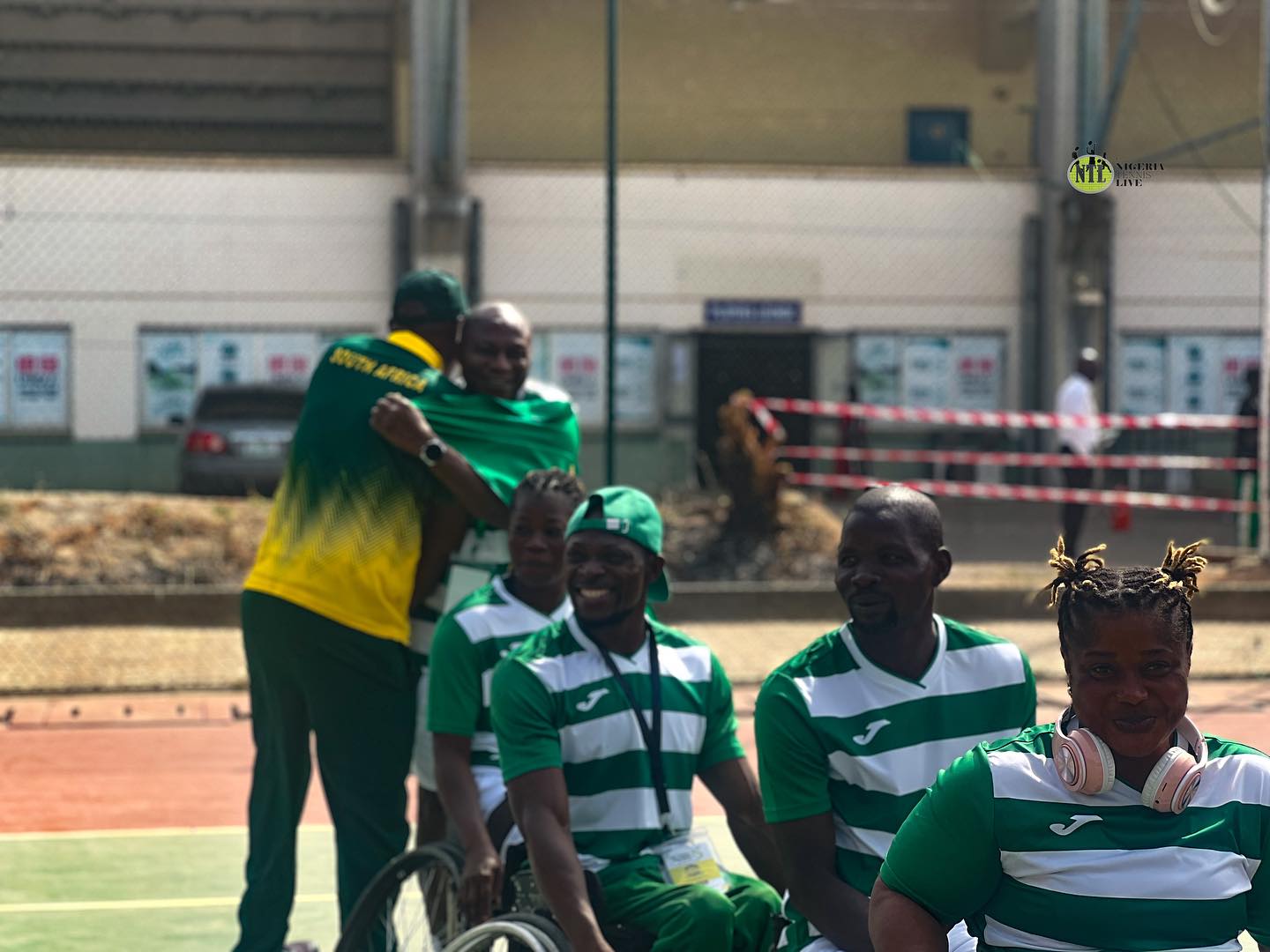
Yusuf added: “There have been a couple of challenges, but I thank God that I’m better than when I started. There were times I did not have money for transportation and some other times I had to train on empty stomach. But things are better for me now.
“My coach tells us that our destinies are in our hands, that we can decide who we want to become. He also told us that someday, we shall overcome our biggest challenges and see them as history.
READ ALSO: Adewale, Wasiu In Fierce Battle As Wheelchair Ranking Tourney Serves Off In Lagos
“It has really shaped my life because I’m okay at the moment. I don’t know if I would have been better than this if I have done something else.
“I really love the game because it has brought me great joy and the fact that I’ve achieved a lot today”.
Not only is Tarmena changing lives in his native country of Nigeria, he took the gesture to neighbouring Ghana where he was appointed by the ITF to train other wheelchair tennis players.
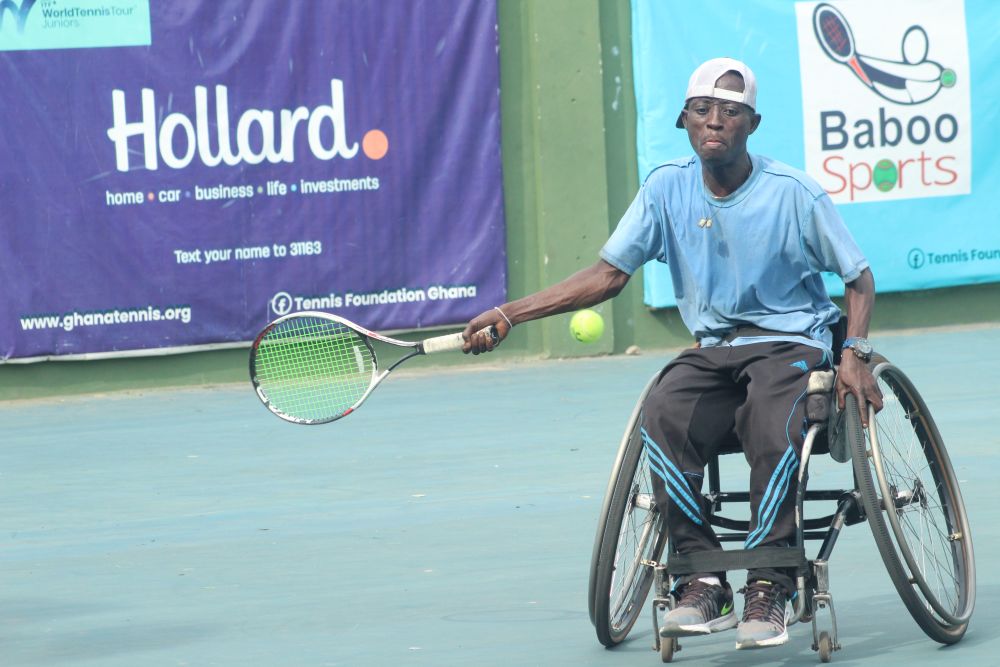
During one of such trips to Ghana, he met with a young man by the name Daniel Laryeah whom he said was literally on drugs and was looking quite untidy.
According to Coach Frank: “He was physically-challenged and came in so ‘high’, rugged and dirty. But I just thought he might be able to play, so I found a way to catch his attention and we had a meal together. I also asked him to join me at the stadium afterwards and he did and that was how we started.
READ ALSO: From Street To Stardom: Emotional Story Of Mohammed Okandeji
“I invited him to join the program I went to do. He limps, and I knew that he was eligible. I told the organizers that he could represent Ghana, while trying to convince them to believe in his abilities.
“Right now, he has been shuttling between no. 1 and 2 in Ghana and has been doing well ever since. He has stopped smoking weed, and is now looking very neat and a lot better since we introduced him to tennis”.
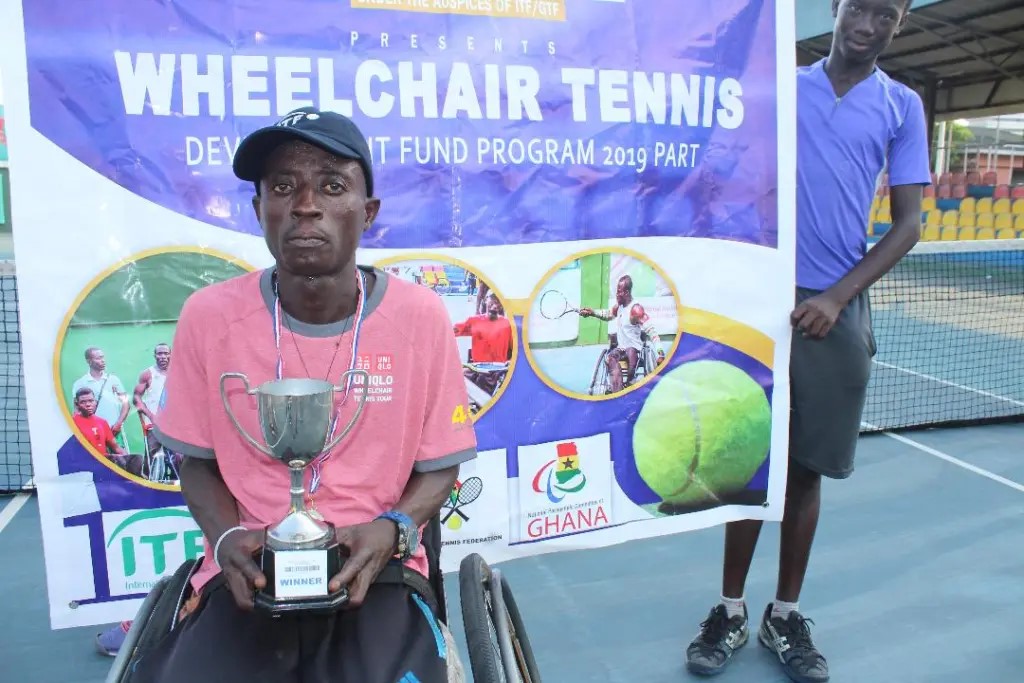
While Coach Frank has been in on players who are physically challenged, Coach Joseph Olalekan has been quietly going about the business of getting youngsters off the streets with tennis.
The man popularly called Coach Joe is based in Jos, a northcentral city in Plateau State, Nigeria, where he is currently running a tennis developmental programme, among other sporting activities.
After his routine morning training with the boys on the morning of the day he had an interview with Nigeria Tennis Live, he recalls how he worked with players who were involved in series of vices.
READ ALSO: Ekpenyong Wins ITA Regional Championship With American Varsity
While there have been quite a number of them, the story of Benjamin James who still trains with him, caught his fancy more, but rather than share the story with our correspondent, he asked the player to speak.
James grew up in the Police Barracks around Obalende, a Lagos neighbourhood associated with ancient Lagos lifestyle, red-light districts and its boisterous activities, and there was no telling what he may have been exposed to as a kid.

Fortunately, he discovered tennis early in life, as he points out: “I found out about tennis when I was in Lagos, in primary 5. Although, we were playing table tennis but tennis later came up and we just discovered it. At the Lagos Lawn, we weren’t really allowed to play.
“They used to pursue us to go home. We kept picking balls for members who were playing. There were many of us from the Police Barracks, Obalende, Lagos. A member dashed my friend and I rackets. We didn’t have a coach but we kept picking rackets. My other friend took it more seriously.
“We later moved from Lagos to Jos. I didn’t know anybody in Jos, but I used to play against the wall. Someone saw me and introduced me to a club. I continued in JS2 but I met coach Joe in SS1”.
READ ALSO: They Called Me Hazard – David Ekpenyong Says, Reveals Why He Quit Tennis For One Year
For someone who already had a foundation in tennis, it was not so difficult for James to get his bearing in Jos, however, life did not go as smoothly as he expected as our correspondent later found out during the chat.
Not only was he accused of theft, the teenager was beaten silly for being part of a group of boys who were seen trying to steal cables from the Solomon Lar Tennis Club in Plateau State, and banned from ever stepping foot on the club.
James was reminded of this incident which dented his image and got him in a lot of trouble but before speaking about it, he took a deep breath.
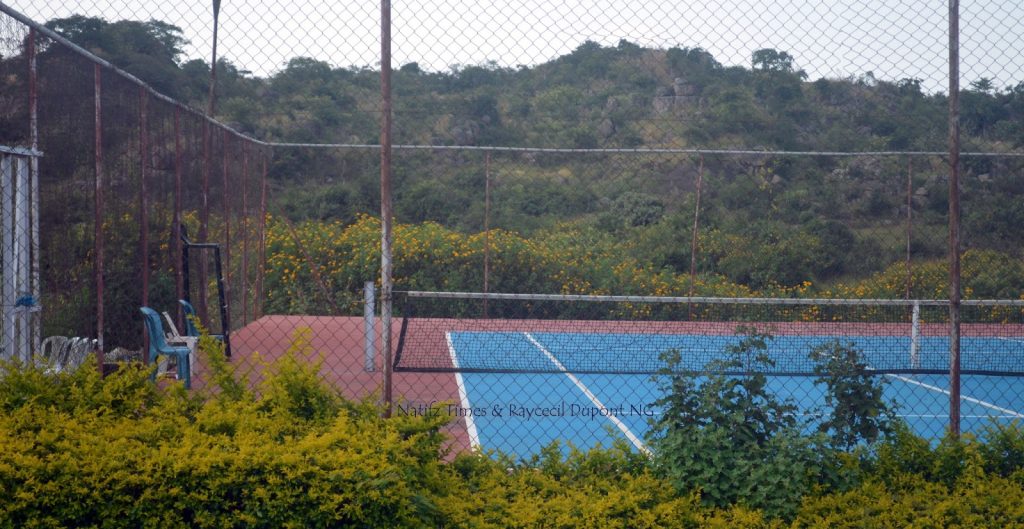
He narrated how he was set up by some of his friends who wanted to steal cables from the tennis club and was made to face the consequence.
“At the time I was no longer playing tennis, I had to get back to school but I wasn’t frequenting the courts like I used to,” a very sad and disappointed James expressed.
Speaking further, he shared details of how he got over it through the help of Coach Joe whose tennis regimen does not allow any free time apart from school time.
READ ALSO: How London Tennis Association Honored Nigeria’s Coach Paul (Photos)
According to him: “I am very certain that If I were actively playing tennis at the time, the theft allegation would not have happened.
“Where I was living was an environment filled with young guys who engaged in different vices. But when I started going to meet Coach Joe, it helped me avoid meeting those boys.
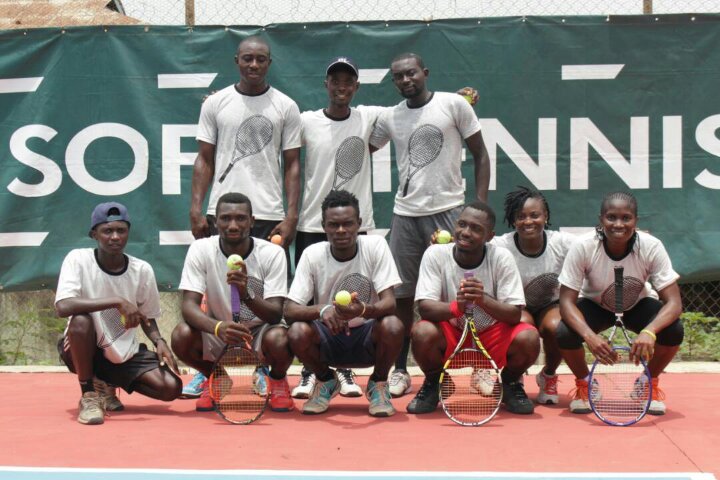
“Maybe I would have joined those guys if I didn’t join Coach Joe, you never can tell. But as far as I can remember, there was never a time it was something I really wanted to do”.
Not only has Benjamin channeled his energy into tennis a lot more, he has backed it up with some really good results as well, bagging his first junior ITF points in the process.
Of the four matches he has played on the Junior ITF Circuit, the 16-year-old has won two, and this was his first-ever attempt at playing an international competition, which clearly shows how talented the youngster is if given the right opportunities for exposure.
READ ALSO: AMAZING! US-based Nigerian Tennis Star Among Varsity’s Best Students
Coach Joe, modest as always, also recalled a more popular incident which went viral across the country at the time. It was the story of a former child drug addict, Michael Solomon, popularly known as Shanawole.
The compelling story was about a then 11-year-old boy who was addicted to drugs and was also identified as a notorious thief in the neighbourhood where he grew up.
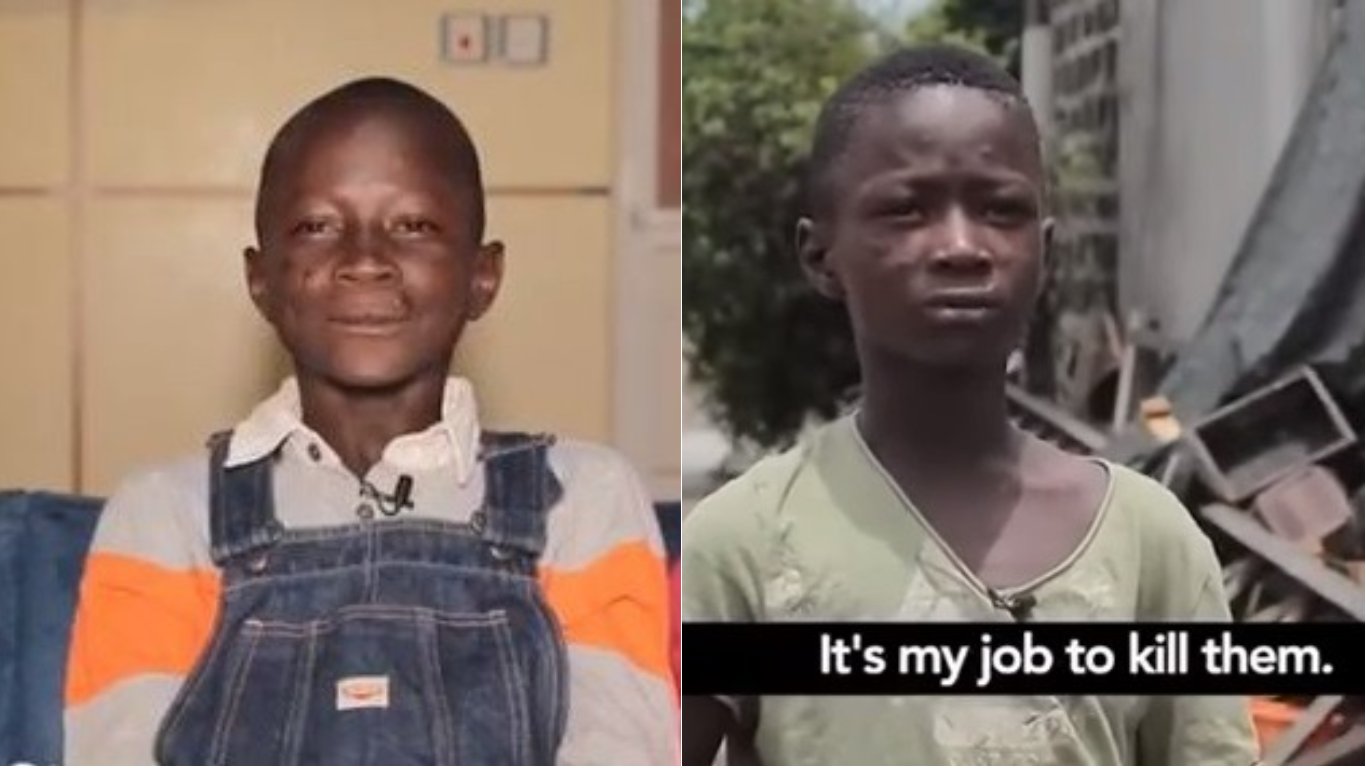
In the viral video which made the rounds across Nigeria, the boy was seen smoking Indian hemp with a lot of audacity and bragged about how he engaged in criminal acts, but was rescued by a popular Nigerian Pastor, Tony Rapu, known to rehabilitate addicts and criminals.
After his rescue, Solomon was taken away from Lagos to Jos, as a way of changing his environment and guess what was one of the alternatives to change this boy’s life? Yes, tennis!
Coach Joe’s Sofit Tennis Academy housed Shanawole and he subsequently became a tennis player under the tutelage of the unassuming and very disciplined coach.
READ ALSO: 14 Nigerian Players In Main Draw As Week 4 Of Junior ITF Event Serves Off In Ghana
While recalling he incident, the coach credited for producing national champions in Nigeria, said: “When he was brought to Jos, they brought him to us, and I paid special attention to him and his tennis regimen.
“Before he left Jos, he had started participating in tournaments and even won one of the events he participated in. We deployed tennis as an alternative to take his mind away from the other vices he was used to.
“It helped him with something else to occupy his mind, made him competitive and because tennis is fun, it added the fun part to his life so that he doesn’t get easily bored”.
Tennis keeps giving people a second chance at life, especially when all the odds are stacked against them. And in Nigeria, a lot more lives have been touched and saved through tennis.
More than ever before, it’s high time attention is paid to the aspect of tennis that serves as an alternative to vices among youths and young ones.

